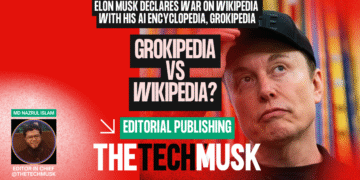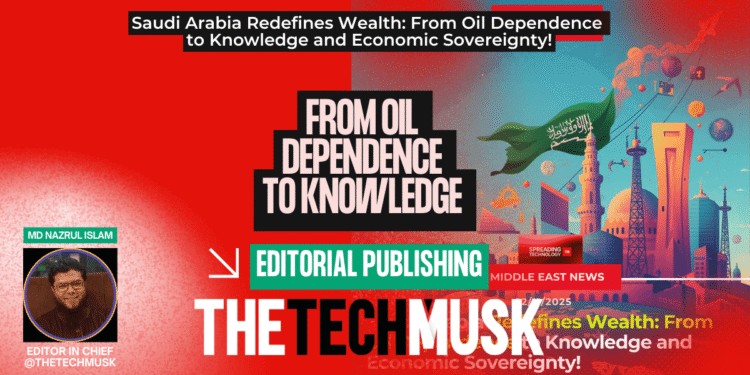Saudi Arabia’s definition of wealth is undergoing a historic transformation.
In a detailed analytical piece published by Asharq Al-Awsat titled “How is Saudi Arabia Redefining Wealth and Economic Sovereignty?”, writer Faisal Abu Zaki examined the Kingdom’s deep structural shifts under Saudi Vision 2030, arguing that the nation is “not merely rebuilding its economy, but redefining wealth itself.”
From Oil to Knowledge: The New Economic Identity
According to Abu Zaki, Saudi Arabia’s economy is rapidly evolving beyond oil — transitioning toward a knowledge-driven, innovation-led, and human-centered model.
Recent data reveals that the non-oil economy surpassed 57% of GDP in Q1 2025, while non-oil revenues soared from SAR 164 billion in 2015 to over SAR 502 billion in 2024.
This surge reflects the effectiveness of government diversification efforts led by the Ministry of Finance and its specialized agencies.
“Wealth in Saudi Arabia is no longer defined by barrels of oil, but by the creative and intellectual capabilities of its people,” Abu Zaki wrote.
He emphasized that investment in human capital, technology, and AI now represents the Kingdom’s truest measure of prosperity.
💡 Economic Sovereignty Through Innovation
Abu Zaki’s analysis highlights a new paradigm of economic sovereignty — one rooted in independence from global commodity cycles and built on domestic innovation.
At the heart of this transformation stands the Public Investment Fund (PIF), which has become a global model for strategic investment.
PIF’s portfolio expansion into semiconductors, renewable energy, AI, and future industries reflects a deliberate move toward building “a sustainable sovereign economy based on knowledge production rather than oil rent.”
Supporting this strategy, fiscal frameworks overseen by the Ministry of Finance and the National Debt Management Center (NDMC) have strengthened financial discipline, debt management, and long-term stability — ensuring that Saudi Arabia’s growth trajectory remains sustainable and resilient.
People at the Core of Economic Transformation
The shift isn’t only about macroeconomics — it’s about empowerment.
Abu Zaki pointed to key labor market achievements:
- Unemployment dropped to 3.2% in early 2025.
- Women’s labor participation climbed to over 36%, a historic milestone for the Saudi workforce.
He described citizens as “the Kingdom’s new wealth,” underscoring that national capability — not natural resources — is now the driving force of the Saudi economy.
Building a Model for the 21st Century Economy
In conclusion, Abu Zaki argued that Saudi Arabia’s approach to economic sovereignty now rests on “the ability to make financial decisions domestically and invest national returns into knowledge and innovation, rather than relying on external sources or oil market volatility.”
This new model, he added, positions the Saudi economy as a distinctive example for emerging nations seeking to balance modernization with self-reliance.
📚 The Role of Financial Awareness
The Communication & Financial Knowledge Center (Mutamem) praised Abu Zaki’s contribution, describing it as a vital effort to highlight the depth of Saudi Arabia’s transformation.
In a statement, the Center affirmed that financial literacy and public awareness are key pillars of achieving sustainable economic sovereignty.
“Raising economic awareness is not just education — it’s empowerment,” the Center noted. “By building financial knowledge in society, we support Vision 2030’s goal of a responsible, financially capable citizenry.”
Through its programs and partnerships, Mutamem continues to support the Ministry of Finance in promoting financial culture, literacy, and economic participation, ensuring that the Kingdom’s prosperity is shared and sustainable.


























